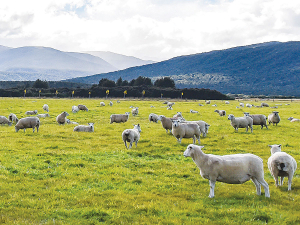The articles, blogs and videos seem to indicate that extinction could be imminent in the wave of plant-based and precision fermentation creations appearing across the world.
Extinction would be a problem for New Zealand society.
The latest Ministry for Primary Industries update (Situation and Outlook June 2024) reported that the primary sector is responsible for 80.9% of merchandise exports and brought $54.6 billion dollars into the New Zealand economy (forecast for the year to June 30th 2024). Of that, $35.6 billion was from dairy and drystock – 65.2% of the export economy.
In 2019 (pre-Covid) the total value of exports from the primary sector was $45.7 billion, of which 60.8% was brought in by the pastoral sector. Far from being in danger of becoming extinct, the pastoral sector is a bigger proportion of a bigger pie.
And the prospects ahead are for increased demand. Latest news from the northern hemisphere indicates that what we produce from pasture is desired.
Over 70% of Americans now ‘trying to consume protein’ and 53% of them are ‘limiting/avoiding’ processed food. These figures come from the International Food and Information Council (IFIC) 2024 Survey report of over 1000 Americans. Further, 37% of people now regard protein as healthy, compared with 29% in 2022.
More good news comes from Europe. An online survey involving over 3000 people in five European countries (Czechia, Spain, Sweden, Switzerland, and the UK) found that when buying meat and dairy products, consumers valued freshness, quality/taste and animal welfare. Healthy eating and nutrition ranked fourth and fifth, with free range/outdoor sixth and price seventh. Environmental attributes such as food miles, carbon footprint, and organic production were the least important of the 18 attributes tested.
These results match with those from America (the IFIC survey).
Taste ranks number one for purchase decision (approximately 85% of respondents) followed by price (approximately 75%), healthfulness ( just over 60%) and convenience ( just under 60%). Environmental sustainability has dropped from just under 40% in 2022 to just over 30% in 2024. For the sector ‘over $150,000 US household income’ (NZ$245,159), however, the importance of environmental sustainability increases to almost 40%. In this bracket, price is less important, and although taste is over 90% and is the first driver of any purchasing decision, healthfulness is next.
It is this premium sector that New Zealand has been targeting.
We should also be focusing on the ‘healthy ageing’ bracket. Forty percent of respondents indicated that the second most important ‘Health Benefit Sought from food, Beverages and Nutrients’ is healthy ageing, after energy and less fatigue.
Fatigue is often associated with iron deficiency (The Lancet reports that 825 million women and 444 million men are affected globally). The haem iron that humans need is found in red meat, poultry and fish and is well-absorbed. Further, a major requirement for maintaining muscle mass into retirement is high quality protein. In Ireland the ‘older adult’ diet guidelines state that a minimum of two meals a day with meat, poultry, fish, dairy products, and eggs should be consumed, and, to a lesser extent, beans, peas, lentils and nuts.
Dairy products are also important for calcium. The USDA estimates that approximately 30 percent of men and 60 percent of women 19 years and up are calcium deficient.
Eat more red meat; eat more dairy…
Meat and dairy are what New Zealand does best.
And as pastoral farmers know, we do it for fewer greenhouse gases per kilogram of product than other countries can yet manage, with high animal welfare for freerange animals outside on pasture, while maintaining two-to-three times as much organic matter in our soils as other countries.
We tick the boxes and the outlook is good.
The real challenge, then, is to ensure that we do receive the premium prices for the products.
‘Fairtrade or producer/ farmer fairly paid’ ranked ninth on the importance list for food choice decisions in Europe. In America, 46% of respondents indicated ‘fair’ was important (with 51% ticking animal welfare).
Reducing impact on environment (44%) and minimising carbon footprint (42%) were less important than the convenience of constant supply locally (56%).
To achieve the premium, New Zealand marketers can focus on ‘good for you’ messages, based on the facts. Meat and milk provide the highquality nutrition recommended by dieticians and do so for fewer calories than non-animal proteins. Iron and calcium are part of the package. Flavour is well-known from pasture – hence the ‘Taste Pure Nature Campaign’.
The EU researchers stated that “food choice decisions are unlikely to be made based on the environmental sustainability of a food product’s production alone”; New Zealand meat and milk products meet the requirements for taste and healthfulness as well.
Pastoral agriculture remains New Zealand’s competitive advantage; rumours of extinction can be countered with the facts, evidence and data.
Dr Jacqueline Rowarth is Adjunct Professor Lincoln University, has a PhD in Soil Science (nutrient cycling) and is a director on the board of governance of DairyNZ, Ravensdown and Deer Industry New Zealand.



















